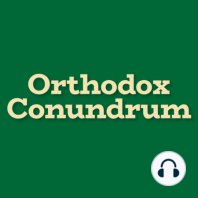39 min listen

"Keep It, Reformulate It, or Discard It": Losing and Regaining Faith, with Rabbi Pesach Sommer (149)
"Keep It, Reformulate It, or Discard It": Losing and Regaining Faith, with Rabbi Pesach Sommer (149)
ratings:
Length:
58 minutes
Released:
Feb 20, 2023
Format:
Podcast episode
Description
It is widely assumed that Jewish law requires the acceptance of certain principles of faith - most commonly associated with the thirteen foundational principles that the Rambam wrote about in his Commentary on the Mishnah in Masechet Sanhedrin. These principles, very broadly summarized, include G-d’s existence, His unity and incorporeality, the fact that G-d is the eternal first cause and that prayer must be directed to G-d alone; that prophecy exists, that Moses was the greatest prophet, that the Torah was given to Israel through Moses, and that the Torah will never be changed or exchanged; that G-d is omniscient, He rewards and punishes, that there will be a messiah and that the dead will one day be resurrected. Again: this is a broad summary, and the actual writing of Maimonides on this matter is more nuanced. Still, these are the principles of Jewish belief that everyone is supposed to assert and, according to the Rambam, not only accept as dogma but also thoroughly understand. What happens, however, when a Jewish person says that he or she cannot accept all of these thirteen principles, or even parts of them? What, for example, if someone believes that G-d communicates with humankind, but doesn’t accept the literal transmission of every word of the Torah through Moses? How should a committed Jew continue observing the Torah when doubts emerge? Rabbi Pesach Sommer experienced these doubts, and it led to a crisis in faith. Crucially, his crisis took place while he was a rabbi teaching in an Orthodox school. And while the crisis for him was very real, he also was able to emerge from it with a more nuanced and, perhaps, stronger faith than before. Today Pesach tells us his story, from how he became a rabbi, to what sparked his doubts, how far down the rabbit hole of doubt he went, and what he was able to do to reinvigorate his faith so that he was able to develop a more mature and in fact deeper connection with G-d and Torah than before. The Orthodox Conundrum is looking for sponsors - either to promote your business or organization, or in someone’s honor or memory . If you want to reach thousands of listeners every week, then write to us at scott@jewishcoffeehouse.com. Please listen to and share this podcast, and let us know what you think on the Orthodox Conundrum Discussion Group on Facebook. Thanks to all of our Patreon subscribers, who have access to bonus JCH podcasts, merch, and more - we appreciate your help, and hope you really enjoy the extras! Visit the JCH Patreon site at https://www.patreon.com/jewishcoffeehouse. Check out https://jewishcoffeehouse.com/ for the Orthodox Conundrum and other great podcasts, and remember to subscribe to them on your favorite podcast provider. Also visit https://www.jchpodcasts.com/ to learn all about creating your own podcast. Music: "Happy Rock" by bensound.com
Released:
Feb 20, 2023
Format:
Podcast episode
Titles in the series (100)
Interview with Rabbi Asher Lopatin, President of Yeshivat Chovevei Torah (Episode 2) by Orthodox Conundrum